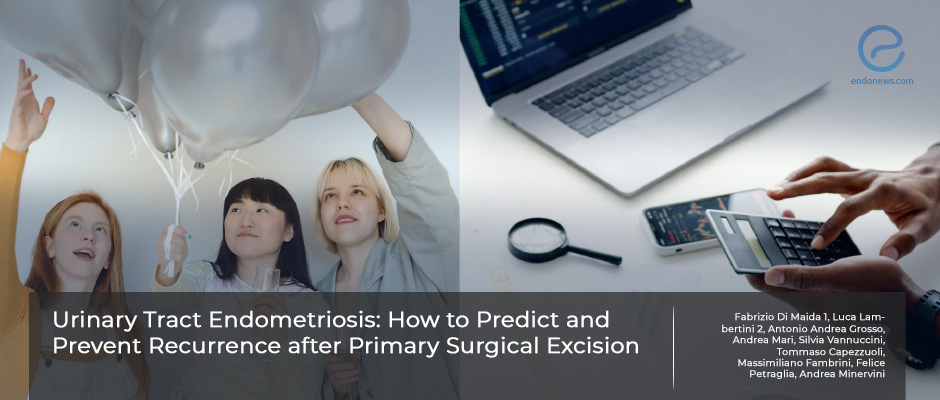Study Identifies Factors Associated With Risk of UrinaryTract Endometriosis Recurrence
Sep 23, 2022
Age below 25 at the time of first surgery and presence of autoimmune diseases seems to be associated with recurrence of urinary tract endometriosis while adjuvant hormonal therapy seems to have a protective effect.
Key Points
Highlights:
- Young age at the time of surgery and the presence of autoimmune disease are risk factors for the recurrence of urinary tract endometriosis.
- Adjuvant hormonal therapy following surgery seems to have a protective effect.
Importance:
- These findings can help guide decision-making on the management of urinary tract endometriosis.
What's done here:
- Researchers retrospectively analyzed 105 women from a single institution with urinary tract endometriosis who were surgically treated with their disease.
- A total of 24 women were treated with open surgery while 30 women had a laparoscopy and 51 had robot-assisted surgery.
- Around half were treated with adjuvant hormonal therapy following surgery.
Key results:
- Endometriosis affected the ureter and/or the bladder in almost half of the patients.
- At a median follow-up of 39 months, 28.6% of patients had disease recurrence (14% recurred in the urinary tract).
- Adjuvant hormonal therapy following surgery seems to have a protective effect.
- An age lower than 25 at the time of the first surgery and the presence of autoimmune disease were predictors of the recurrence of deep infiltrating endometriosis.
Limitations:
- This was a study conducted in a single institution and the results may not be the same elsewhere.
Lay Summary
Being younger than age 25 and having an autoimmune disease are significant predictors of the recurrence of urinary tract endometriosis after surgery according to a new study published in the Journal of Minimally Invasive Gynecology. Adjuvant hormonal therapy, on the other hand, seems to have a protective role.
Urinary tract endometriosis can affect different parts of the urinary tract including the ureters, bladder, and kidneys. The gold standard for the treatment of the disease is laparoscopic deep excision surgery. However, the disease sometimes recurs following surgery.
In order to identify factors that could predict the recurrence of the disease, a team of researchers from Italy led by Dr. Andrea Minervini from the Unit of Oncologic Minimally Invasive and Andrology, Department of Experimental and Clinical Medicine conducted a retrospective study.
The researchers enrolled a total of 105 women, ages 24 to 37 with urinary tract endometriosis who had surgery between January 2016 and March 2020 to treat their disease.
The disease affected the ureter in half (50.5%) of the patients (53 out of 105). It affected the bladder in almost half (49.5%) of the patients.
A total of 24 women were treated with open surgery while 30 women had a laparoscopy and 51 had robot-assisted surgery.
Around half (50.5%) of women were treated with adjuvant hormonal therapy following surgery.
At a median follow-up of 39 months, 28.6% of patients had disease recurrence. Of these, 14% had the disease recur in the urinary tract.
The researchers calculated that the age of the women at the first surgery and the presence of autoimmune disease were predictors of the recurrence of deep infiltrating endometriosis. On the contrary, adjuvant therapy after the operation seemed to have a protective effect.
Deep infiltrating endometriosis is a highly invasive form of endometriosis affecting the uterosacral ligaments, rectum, rectovaginal septum, vagina, and bladder.
Research Source: https://pubmed.ncbi.nlm.nih.gov/35817366/
deep infiltrating endometriosis urinary tract endometriosis surgery hormonal treatment risk factor recurrence

